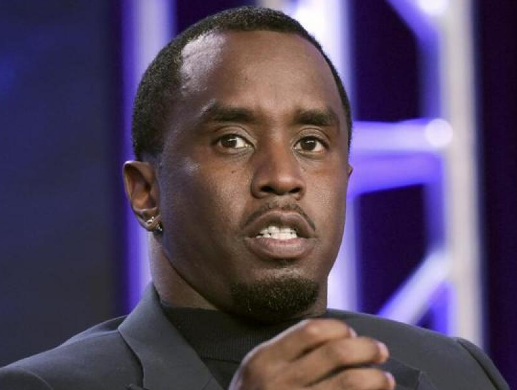Sean “Diddy” Combs Faces Serious Legal Challenges: Insights from Former Bodyguard Gene Deal
Sean “Diddy” Combs, the renowned music mogul and founder of Bad Boy Records, is currently navigating a turbulent legal landscape. With a court trial scheduled for May 5, 2025, he faces serious charges, including sex trafficking, prostitution, and racketeering conspiracy.1
In a recent interview on The Art of Dialogue, Gene Deal, Diddy’s former bodyguard, provided insights into the implications of these charges and the potential outcomes of the trial.
Table of Contents
The Nature of the Charges
The allegations against Diddy are grave and could have significant repercussions for his personal and professional life. Sex trafficking, in particular, is a severe offense that draws considerable public and legal scrutiny. The charges also suggest that the prosecution may have gathered substantial evidence, potentially including witness testimonies and documented incidents.
According to Deal, the breadth of the allegations against Diddy indicates a challenging road ahead. He stated that the nature of the evidence collected by prosecutors could weigh heavily in their favor, suggesting that a conviction might be more likely than not.
Insights from Gene Deal
- Gene Deal’s insights into Diddy’s legal situation are especially noteworthy, given his close relationship with the artist during his time as a bodyguard.
- Deal has observed the inner workings of Diddy’s life and career, and his perspectives offer a unique lens through which to understand the potential ramifications of the trial.
- In his interview, Deal expressed skepticism about Diddy’s chances in court. He emphasized the seriousness of the allegations and the possibility of multiple witnesses testifying against the music mogul.
- He remarked, “With the kind of evidence they have, I think he’s going to have a hard time. The witnesses are already coming forward, and that doesn’t bode well for him.”
- Deal’s comments underline the idea that Diddy’s defense may face an uphill battle, especially if the prosecution can convincingly present their case with credible witnesses and compelling evidence.
The Impact on Diddy’s Career
Should the trial lead to a conviction, the consequences for Diddy could be profound, not only legally but also in terms of his career. As a prominent figure in the entertainment industry, Diddy has built a brand that spans music, fashion, and business.
A conviction on such serious charges could tarnish his legacy and result in financial repercussions, including loss of endorsements and partnerships.
Also Read: Jelly Roll: Massive Celebrity Hints at WWE Future After Triple H’s High Praise
Gene Deal on the Impact of Cassie Ventura Footage and Sean Combs’ Legal Strategy
In a recent interview with The Art of Dialogue, former bodyguard Gene Deal delved deeper into Sean “Diddy” Combs’ ongoing legal troubles, particularly in light of accusations involving Cassie Ventura, Combs’ former girlfriend.2
View this post on Instagram
Deal’s remarks highlight the gravity of the situation, suggesting that leaked footage related to Cassie Ventura has severely tarnished Combs’ reputation, perhaps beyond repair.
The Cassie Ventura Footage and Its Impact
The leaked footage and accusations surrounding Cassie Ventura have drawn immense attention, adding further complexity to the high-profile case. Cassie, a former singer and model who was romantically involved with Combs for several years, is reportedly central to some of the charges involving sexual misconduct and other serious allegations.3
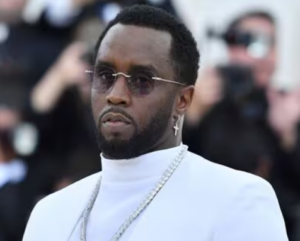
Legal Strategy: The Early Trial Date
Gene Deal also shed light on the strategy behind Combs’ legal team pushing for an early trial date. According to Deal, Combs’ defense attorneys were keen on expediting the legal process to prevent the prosecution from gathering and organizing a substantial amount of evidence in a limited time frame.
By moving the trial date up, the defense likely hoped to minimize the impact of potential damaging evidence that could arise during a more extended investigation.
Accusations Against the Department of Homeland Security
- One of the more contentious aspects of the case, as discussed by Gene Deal, is the defense’s accusation that the DHS leaked information related to Cassie Ventura and the ongoing investigation.
- Combs’ legal team has reportedly argued that the leak compromised the fairness of the trial by influencing public opinion and potentially tainting the jury pool.
- If proven true, the defense’s claims could have a significant impact on the case, possibly leading to legal maneuvers aimed at delaying or dismissing certain aspects of the prosecution’s argument.
- However, it’s unclear whether the DHS’s involvement will hold enough weight to derail the case, especially given the serious nature of the charges against Combs.
Sean Combs: The Rise of an Entertainment Mogul
Sean Combs, born on November 4, 1969, in New York City, is a prominent American rapper, record producer, actor, entrepreneur, and fashion designer. Throughout his multifaceted career, Combs—also known by his stage names Puff Daddy, P. Diddy, and Diddy—has shaped the landscape of hip-hop and the entertainment industry at large.
By founding Bad Boy Records in the early 1990s and cultivating a brand that stretched far beyond music, Combs turned himself into one of the most influential figures in popular culture.
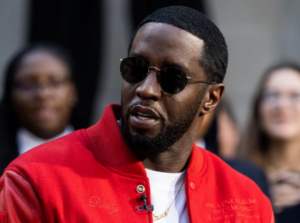
Early Life and Roots in New York
- Sean Combs grew up in Harlem, New York, in a time when the city was witnessing significant cultural shifts, particularly in music and fashion.
- Raised by his mother, Janice Combs, after his father was killed when he was a child, Combs’ early life was marked by resilience and ambition.
Electronics seized during search of Sean ‘Diddy’ Combs’ properties, sources tell ABC News https://t.co/CZiBjIzye6 pic.twitter.com/vDlj7C7M5P
— Eyewitness News (@ABC7NY) March 27, 2024
- His experience of hustling through life’s challenges in the gritty streets of Harlem shaped his relentless drive to succeed.
- Combs attended Howard University, a historically Black institution, but left in his sophomore year to pursue a career in the music industry.
- While at Howard, Combs developed his network and honed his promotional skills, setting the stage for what would be an explosive entry into the music business.
Building Bad Boy Records: A Hip-Hop Powerhouse
In 1993, Sean Combs founded Bad Boy Records, a label that would soon redefine hip-hop and R&B. One of his first and most notable discoveries was the late Christopher Wallace, better known as The Notorious B.I.G. or Biggie Smalls.
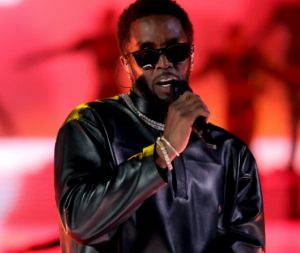
Under Combs’ guidance, Biggie became one of the most iconic rappers of all time, and their collaborative work laid the foundation for Bad Boy Records’ massive success.
“Puff Daddy” and the Mainstream Breakthrough
As Puff Daddy, Combs transitioned from behind-the-scenes producer to center-stage performer. His debut album, No Way Out (1997), featured hit singles like “I’ll Be Missing You” and “Can’t Nobody Hold Me Down,” solidifying his place as not only a successful businessman but also a chart-topping artist.
“I’ll Be Missing You,” a tribute to his close friend Biggie Smalls after his tragic death in 1997, became an international hit, reflecting Combs’ emotional depth and his ability to connect with fans on a personal level.
Also Read: When Will Macklin Celebrini Make His NHL Debut? Sharks’ Season and More
Sean Combs’ Career: From Intern to Industry Mogul
Sean Combs’ remarkable career began with humble roots, as an intern at Uptown Records in 1990. Under the mentorship of Andre Harrell, the founder of Uptown Records, Combs learned the intricacies of the music business, honing his skills as a talent director.
His ability to recognize raw talent and shape it into mainstream success was evident early on as he played a crucial role in the development of R&B stars like Jodeci and Mary J. Blige. This was the foundation of what would later become a powerful and far-reaching empire in the entertainment world.
Talent Director at Uptown Records
While interning at Uptown Records, Combs displayed a natural ability to nurture talent, soon earning a position as a talent director. Working closely with artists like Jodeci and Mary J. Blige, he helped craft the sound and image that would make them stars.
Blige’s album, What’s the 411?, became a landmark in the evolution of R&B, blending hip-hop with traditional soul in a way that redefined the genre for the 1990s.
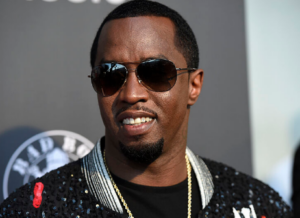
The Rise of Bad Boy Records
Founded in 1993, Bad Boy Records was Sean Combs’ brainchild and marked the beginning of his meteoric rise in the music industry. Combs immediately signed one of his most iconic artists, The Notorious B.I.G., also known as Biggie Smalls.
Biggie’s debut album, Ready to Die (1994), became an instant classic and established him as one of the most influential figures in hip-hop. The album’s success propelled Bad Boy Records to the forefront of the music industry, making Combs a key player in the world of hip-hop.
Puff Daddy: From Producer to Performer
While establishing himself as a formidable force behind the scenes, Sean Combs eventually made his own leap into the spotlight. Adopting the stage name Puff Daddy, he released his debut album, No Way Out (1997), which became a commercial triumph.
The album, featuring hits like “I’ll Be Missing You” and “Can’t Nobody Hold Me Down,” showcased Combs’ ability to combine his entrepreneurial instincts with his musical talent.
P. Diddy’s Net Worth: A Closer Look at His $600 Million Empire
Sean Combs, popularly known as P. Diddy or Puff Daddy, has built an impressive empire over the past few decades, earning him a place among the wealthiest figures in the entertainment world. As of 2024, Diddy’s net worth is estimated at $600 million, making him one of the richest hip-hop artists and entrepreneurs globally.
From his successful career in music to his ventures in fashion, spirits, and media, Diddy has continuously expanded his influence and financial portfolio.
The Foundation of Diddy’s Wealth: Music and Bad Boy Records
Diddy’s path to becoming a multimillionaire began with his breakthrough in the music industry. His early success as a talent director at Uptown Records, followed by the founding of his own label, Bad Boy Records, set the stage for his rise to prominence.
The success of artists like The Notorious B.I.G., Faith Evans, Mase, and later 112, Total, and Loon, solidified Diddy’s reputation as one of the most important figures in hip-hop during the 1990s.
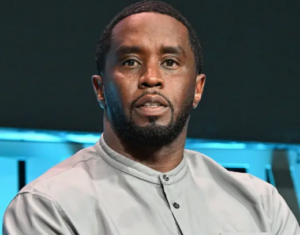
Expanding Beyond Music: Fashion and Sean John
- One of Diddy’s most successful ventures outside of music was the launch of his fashion line, Sean John, in 1998. The brand quickly gained popularity for its blend of urban and high-fashion aesthetics, becoming a staple in the hip-hop community and beyond.
- The fashion line’s success was solidified when Combs won the Council of Fashion Designers of America (CFDA) award for Menswear Designer of the Year in 2004.
- Sean John’s popularity generated millions in revenue, with the brand becoming a household name. At its peak, Sean John earned over $500 million in annual retail sales, making it a significant contributor to Diddy’s fortune.
- In 2016, Combs sold a majority stake in the brand, cashing in on his years of hard work and adding to his already substantial wealth.
Cîroc Vodka and the Spirits Industry
One of Diddy’s most profitable business ventures has been his partnership with Cîroc Vodka. In 2007, Combs entered into a 50-50 profit-sharing deal with Diageo, the company behind the Cîroc brand. Under Diddy’s leadership, Cîroc was repositioned as a premium vodka brand, with heavy promotion in music videos, clubs, and celebrity events.
FAQ’S
1. What is the 2025 trial involving Diddy about?
Ans: The 2025 trial involving Diddy (Sean Combs) is related to a high-profile legal case, likely involving allegations from his past, which could pertain to disputes, lawsuits, or unresolved controversies. The exact nature of the trial is currently the subject of public and media attention.
2. Who is Gene Deal, and what is his connection to Diddy?
Ans: Gene Deal is a former bodyguard for Diddy, who worked closely with him during the peak of his career in the 1990s and early 2000s. Over the years, Deal has publicly shared his experiences, including insights into Diddy’s professional and personal life.
3. Why does Gene Deal believe the trial is a ‘foregone conclusion’?
Ans: Gene Deal suggests the trial is a foregone conclusion based on his inside knowledge of Diddy’s past and certain undisclosed events. Deal has made claims about Diddy’s involvement in various incidents that could influence the outcome of the trial, making it seem as though the result is inevitable.
4. What has Gene Deal said about the evidence or events leading to the trial?
Ans: Deal has hinted at key evidence and incidents from Diddy’s past that he believes will play a significant role in the trial. He has suggested that these details will surface during the proceedings and may heavily influence the jury or public opinion against Diddy.
5. How has Diddy responded to these statements and the upcoming trial?
Ans: Diddy has not publicly responded to Gene Deal’s specific comments, but he has consistently denied allegations from various sources over the years. As the trial approaches, Diddy’s legal team is expected to address these claims and prepare a defense to challenge the narrative being built around him.
